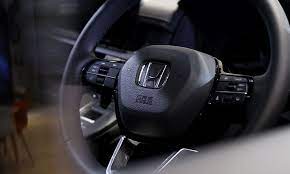TORONTO (AFP): Japanese automaker Honda is considering building its next electric-vehicle factory in Canada in a multi-billion-dollar project that might include producing its own batteries by 2028, according to a report Sunday.
Estimated to cost 2 trillion yen (nearly US$14 billion), the project would represent one of the multinational firm’s biggest investments ever, according to Japan’s Nikkei news group.
Honda said in response to an AFP query that it is “considering a number of initiatives as we move into the electrified era” but had nothing else to say for now.
Without confirming the Nikkei report, Canadian industry minister Francois-Philippe Champagne told Canada’s Global News that it reflected the country’s growing reputation as a leader in attracting green investment in the auto industry.
Honda is studying several sites, notably next to one of its factories in Ontario province, Nikkei said. It said the Japanese company is expected to make a decision sometime this year that would allow production to begin in 2028.
In recent years Canada has actively worked to attract manufacturers in the electric-vehicle sector, offering tax breaks and boasting its plentiful renewable energy sources and supplies of rare minerals used in EV batteries.
The Canadian strategy follows the example set by the country’s leading trading partner, the United States, whose Inflation Reduction Act of 2022 aims to provide billions of dollars in subsidies for green industries.
Honda announced that year that it plans to build an EV hub in the US state of Ohio, in partnership with LG Energy Solution of South Korea, with a goal of producing EV batteries by 2026.
In 2021, Honda set an ambitious objective for its auto sector of 100 percent EV production by 2040, a goal that will require enormous investment.
But in late October, the Japanese group and its American partner General Motors said they were dropping plans to jointly produce millions of “affordable” electric vehicles by 2027.
EV sales have slowed in the United States amid rising interest rates, but Honda expects that trend to change.
President Joe Biden’s administration has set a goal of having 50 percent of all new vehicle sales be electric by 2030.
And the Canadian government of Prime Minister Justin Trudeau recently proposed a target of having 60 percent of new vehicles sold in the country be zero emission by the same year.
Vinfast plans first EV factory in India
Vietnamese carmaker VinFast said it will build its first electric vehicle factory in India as part of a planned $2 billion investment, as it looks to expand into the rapidly growing market.
The facility will be in the southern state of Tamil Nadu, according to a VinFast statement released Saturday, which said there was an initial intended commitment of $500 million for the first five years of the project.
The communist state’s first homegrown car manufacturer is hoping to compete with EV giants such as Tesla, and is trying to crack international markets.
But VinFast’s expansion overseas has faced a rocky start.
Of the 11,300 vehicles it sold in the first half of last year, 7,100 were bought by a company owned by the same parent company as VinFast.
The firm listed on the Nasdaq in August, hitting headlines around the world as its valuation skyrocketed and then crashed.
In the statement, the company said that the “VinFast Tamil Nadu project aims to evolve into a first-class electric vehicle production hub in the region, with an annual capacity of up to 150,000 units”.
Construction of the plant is expected to begin this year, and create up to 3,500 local jobs.
“This initiative forms a crucial part of VinFast’s strategy to establish a strong presence in key markets and strengthen its supply chain for global expansion,” the statement added.
Tamil Nadu state chief minister M.K. Stalin welcomed the deal, calling it a “great leap in the industrial development” of the state, in a post on social media.
The announcement comes as VinFast named Pham Nhat Vuong, chairman of parent company Vingroup, as its new CEO on Saturday.
Vuong will “directly oversee the operations of VinFast, including global production, sales, and marketing”, the statement said.
Vuong, Vietnam’s richest man, replaces Le Thi Thu Thuy, who has held the post since 2021 and now becomes the chairwoman of the board of directors.
His net worth is around $4.6 billion, according to Forbes, and in April last year, he provided VinFast with a $1 billion grant.







